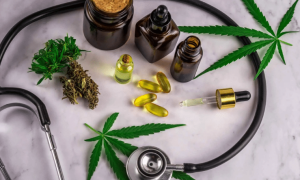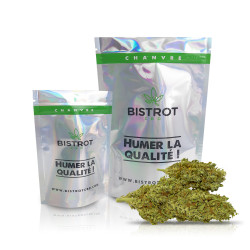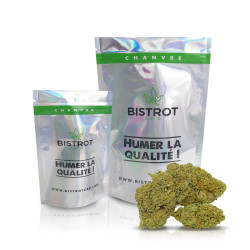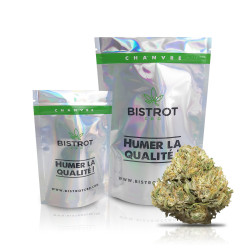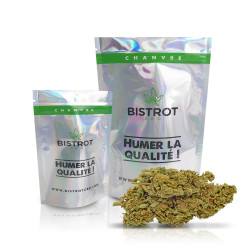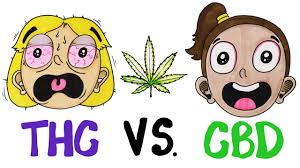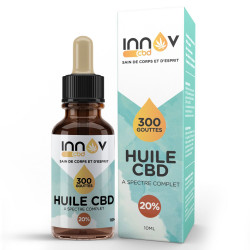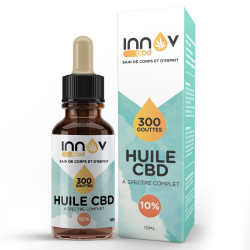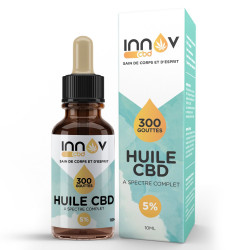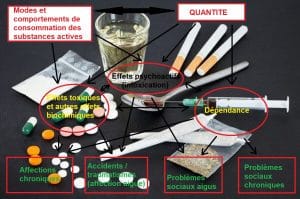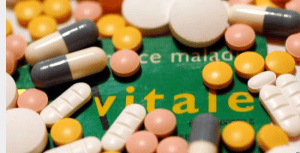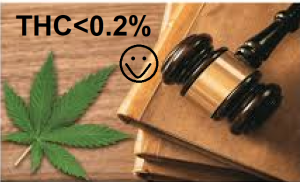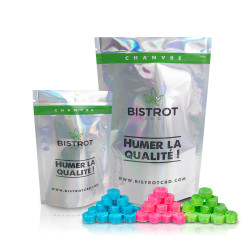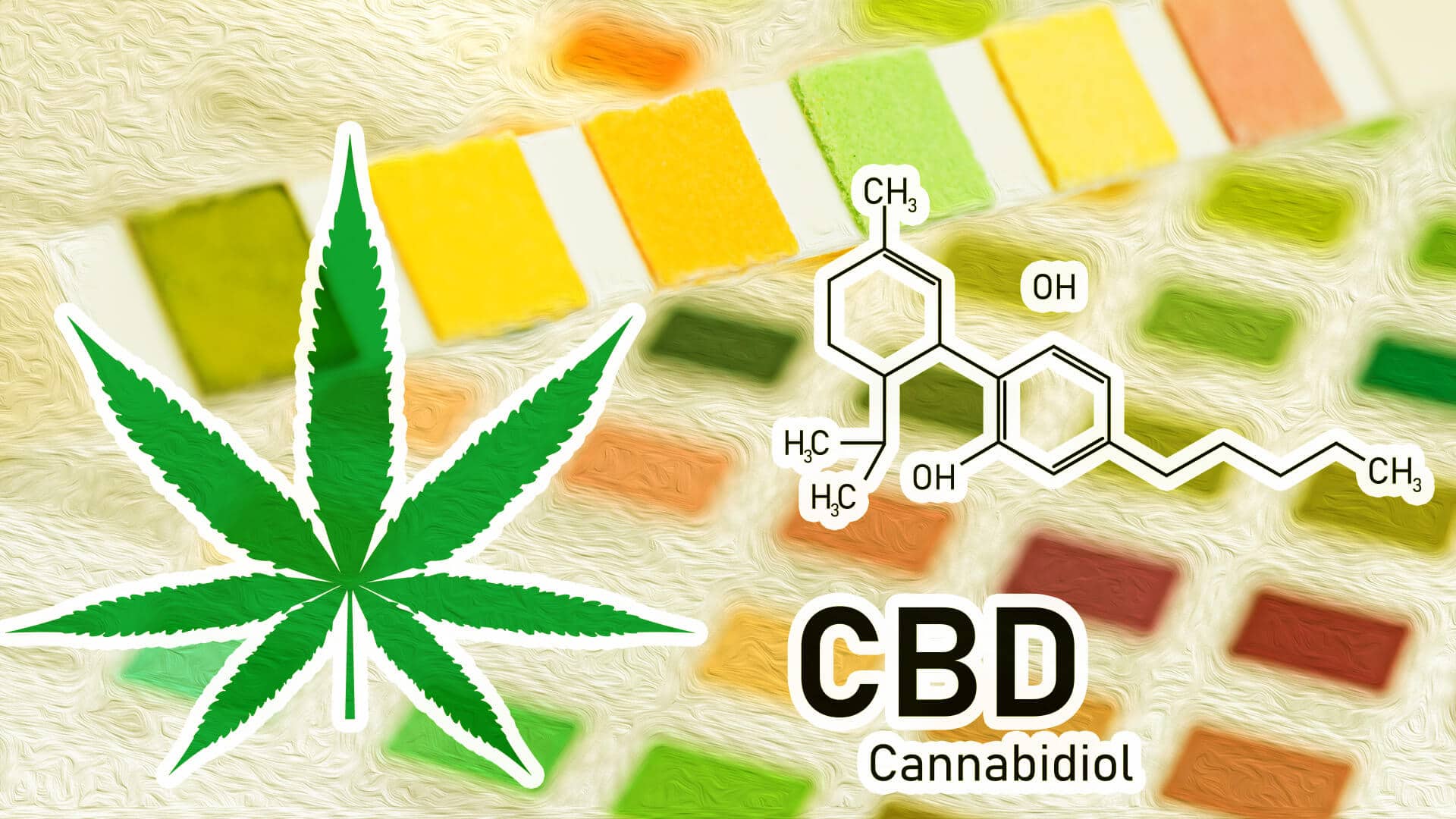
CBD, cannabidiol or the active ingredient in cannabis, has been coming out of the closet for a few years. If this term has become very common in both the private and public sphere, it is because of its origin of extraction, i.e. cannabis.
If in Europe, several countries have clarified their laws concerning this molecule in order to facilitate its marketing, its production, its consumption and its study on health, in France, the legislation is much more vague and it is still too often that we confuse CBD and THC.
In reality, this lack of discernment concerns 2 quite distinct molecules but both present in hemp or cannabis: CBD (cannabidiol) and THC (delta-9-tetrahydrocannabinol), hence the confusion for uninformed people.
Definition: What is CBD or cannabidiol?
Like its cousin THC, cannabidiol is one of many cannabinoid active substances produced by cannabis sativa. If there are a hundred or so molecules of this type, it is these two that pose problems for the French legislative system. However, CBD is now found in many
CBD shops
in different forms:
- oil, cosmetics, food supplements or liquids for electronic cigarettes
This cannabinoid would thus have many virtues.
What is the difference between CBD and THC?
In reality, even if these two molecules are derived from cannabis, everything opposes them. These cannabinoids are distinguished both by their nature and their effects. However, it is this confusion that lends bad intentions to CBD.
THC
THC is the psychoactive molecule sought after for its high and euphoric effects. It is responsible for a psychological dependence of its user by having for result, a consumption of more and more elevated in order to find “the feelings of the beginnings”. Now put the fact that its assimilation is done essentially by smoking the flowers and the leaves of cannabis and that consequently that can generate all the cardiovascular and respiratory complications already known for a tobacco smoker, the molecule of THC acts on the brain. As a result, it can lead to changes :
- behavior: paranoia, euphoria.
- perceptions: visual impairment, poor distance assessment…
- cognitive abilities: difficulty to concentrate, amorphous state.
- the physical: red eyes, thick saliva.
CBD
CBD has no psychotropic effect. If the feeling of relaxation that this molecule produces to its user is no longer to prove, CBD is still subject to serious studies to scientifically highlight its hypothetical beneficial effects (neuroleptic, anxiolytic, anti-epileptic ..). As for its harmful side effects, it would have little or none, which is why the World Health Organization (WHO) does not classify it as a
controlled substances
.
CBD: a drug, a medicine?
To answer this question, it is important to first define these two terms.
The drug
We classify as narcotic:
- any molecule or natural or chemical product that may cause a psychotropic effect leading to dependence if its use is repeated and harmful to health. This is called addiction.
Drug use is voluntary and independent of any medical prescription.
Medication
These are products administered to an individual in order to treat or prevent a disease by acting on organic functions. These substances and their derivatives are authorized or not by
THE ANSM
(National Agency for the Safety of Medicines and Health Products) according to their benefit/risk ratio. Only pharmacies are allowed to sell drugs.
To summarize simply, natural or chemical products are considered as medicines if they are authorized on the market after studies and tests. In addition, they must have a curative or preventive effect on humans or animals. The use of drugs is done illegally and without medical prescriptions. It is not induced to meet the needs of a disease or for the purpose of improving health.
CBD: drug or not?
It seems appropriate to ask the question:
- where does CBD and products containing it fit in the French legislation (medicines or drugs) given the explosion of the CBD oil market and other derivatives in France, Europe and the American continent?
In France, the law is clear:
- the THC content of authorized hemp varieties must not exceed 0.2% in the plant itself
- the finished product, to be legal, must have a zero THC level.
So yes, if we take the CBD molecule as such and it is possible to completely obscure which plant it comes from, we can say that :
- CBD is not a drug since it is not on the list of narcotics in the legislation.
However, that’s where the problem lies, CBD, sold in the form of oil or other products, is not synthetic. It comes from a variety of cannabis. This legal hemp with a THC content lower than 0.2% used for the manufacture of
CBD oil
to name but one, must therefore guarantee a THC-free CBD extraction. Only if this certainty is possible is a product legal.
So, is CBD a legal drug?
The perceived craze since 2018 for CBD may stem from the recreational side that the substance suggests. Indeed, it remains always assimilated as cannabis, itself systematically labelled as a drug. However, CBD is not cannabis! Indeed, it is just the product of a plant. In reality, it is the THC (another cannabinoid contained in
cannabis sativa
) that gives hemp its popular drug status. Thus, a THC consumer quickly realizes that the high or euphoric side of this molecule is absent from a product containing only CBD. The theory that cannabidiol is used to obtain “intoxicating” drug-like effects can therefore be abandoned.
CBD is therefore not a prohibited substance
as a molecule in the proper sense. Its effects are not recreational, not psychotropic and not addictive. This definition is quite different from the definition of a drug. However, cannabidiol is not recognized as a medicine in France for the moment.
FAQ: CBD vs drugs
[sp_easyaccordion id=”11490″]
